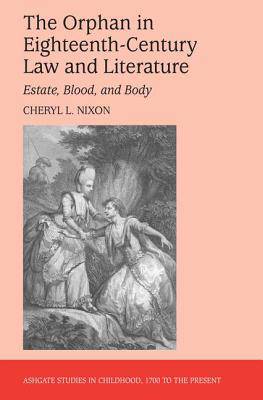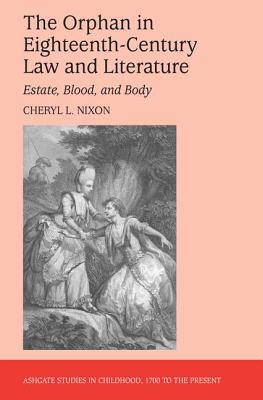
En raison d'une grêve chez bpost, votre commande pourrait être retardée. Vous avez besoin d’un livre rapidement ? Nos magasins vous accueillent à bras ouverts !
- Retrait gratuit dans votre magasin Club
- 7.000.000 titres dans notre catalogue
- Payer en toute sécurité
- Toujours un magasin près de chez vous
En raison de la grêve chez bpost, votre commande pourrait être retardée. Vous avez besoin d’un livre rapidement ? Nos magasins vous accueillent à bras ouverts !
- Retrait gratuit dans votre magasin Club
- 7.000.0000 titres dans notre catalogue
- Payer en toute sécurité
- Toujours un magasin près de chez vous
202,95 €
+ 405 points
Format
Description
Cheryl Nixon's book is the first to connect the eighteenth-century fictional orphan and factual orphan, emphasizing the legal concepts of estate, blood, and body. Examining novels by authors such as Eliza Haywood, Tobias Smollett, and Elizabeth Inchbald, and referencing never-before analyzed case records, Nixon reconstructs the narratives of real orphans in the British parliamentary, equity, and common law courts and compares them to the narratives of fictional orphans. The orphan's uncertain economic, familial, and bodily status creates opportunities to "plot" his or her future according to new ideologies of the social individual. Nixon demonstrates that the orphan encourages both fact and fiction to re-imagine structures of estate (property and inheritance), blood (familial origins and marriage), and body (gender and class mobility). Whereas studies of the orphan typically emphasize the poor urban foundling, Nixon focuses on the orphaned heir or heiress and his or her need to be situated in a domestic space. Arguing that the eighteenth century constructs the "valued" orphan, Nixon shows how the wealthy orphan became associated with new understandings of the individual. New archival research encompassing print and manuscript records from Parliament, Chancery, Exchequer, and King's Bench demonstrate the law's interest in the propertied orphan. The novel uses this figure to question the formulaic structures of narrative sub-genres such as the picaresque and romance and ultimately encourage the hybridization of such plots. As Nixon traces the orphan's contribution to the developing novel and developing ideology of the individual, she shows how the orphan creates factual and fictional understandings of class, family, and gender.
Spécifications
Parties prenantes
- Auteur(s) :
- Editeur:
Contenu
- Nombre de pages :
- 302
- Langue:
- Anglais
- Collection :
Caractéristiques
- EAN:
- 9780754664246
- Date de parution :
- 28-04-11
- Format:
- Livre relié
- Format numérique:
- Genaaid
- Dimensions :
- 156 mm x 234 mm
- Poids :
- 603 g

Les avis
Nous publions uniquement les avis qui respectent les conditions requises. Consultez nos conditions pour les avis.






